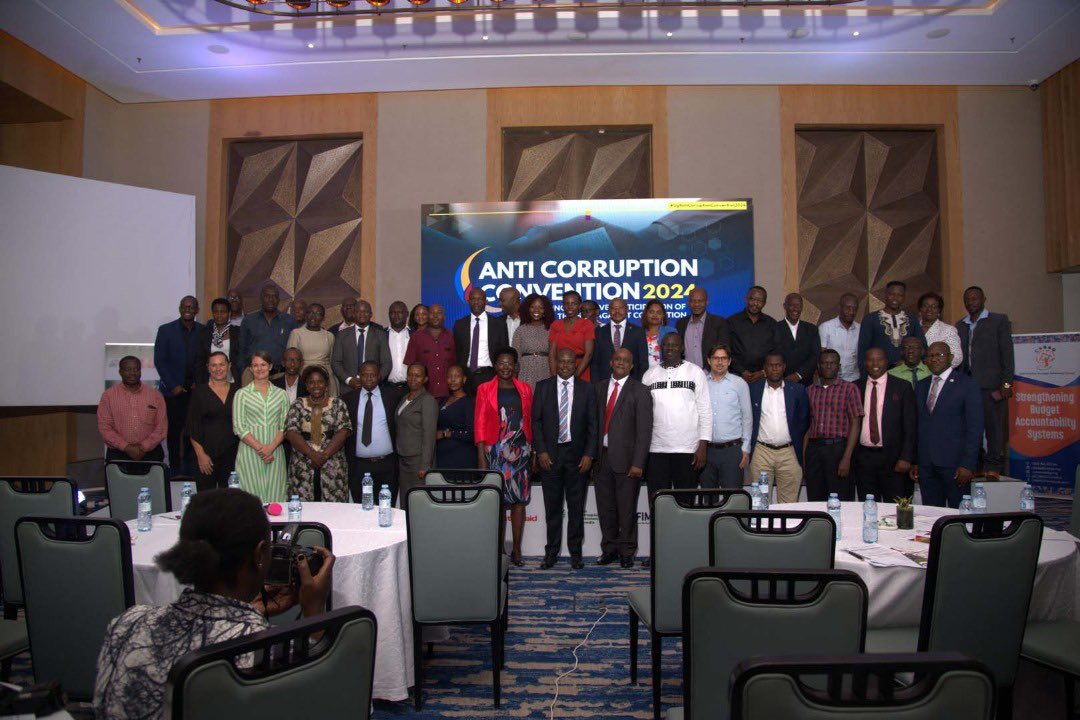
Promoting Effective Participation of Youth in the War Against Corruption.
On December 5th, 2024, Uganda National NGO Forum (UNNGOF) had the privilege of participating in the 2024 Anti-Corruption Convention, hosted by the Anti Corruption Coalition Uganda (ACCU) under the theme, “Promoting Effective Participation of Youth in the War Against Corruption.” The event brought together a diverse group of stakeholders, including civil society, government leaders, media representatives, academia, and citizens.
This convention provided a platform for discussions on the pressing issue of corruption in Uganda and its far-reaching consequences. As the fight against corruption continues to be a key focus of development efforts in the country, the event served as an opportunity to exchange ideas and strategize for more effective solutions.
Corruption as an Obstacle to Socio-Economic Development
Corruption is one of the major obstacles undermining Uganda’s socio-economic development. Although substantial investments have been made to combat corruption, it continues to impose wide-ranging costs on society. Corruption erodes public trust in government institutions, hampers infrastructure development, delays critical project implementations, and reduces both public and private sector investments. Corruption undermines the delivery of essential social services, often resulting in diminished access to healthcare, education, and basic public amenities. In some cases, the cost of corruption extends even further, contributing to the loss of lives due to the failure to deliver timely services.
Given these far-reaching impacts, the urgency of tackling corruption in Uganda cannot be overstated. It is critical that all sectors; government, civil society, and the private sector collaborate in addressing these challenges and work together to create a more transparent, accountable, and just society.
Key Takeaways from the 2024 Anti-Corruption Convention
Several critical insights emerged during the convention, which highlighted both the challenges and opportunities in the ongoing battle against corruption in Uganda:
- Corruption’s pervasive impact on Uganda’s society and economy demands increased participation from all sectors, especially the youth. There was a strong call for youth to take an active role in anti-corruption initiatives. Their involvement is critical to driving long-term change and ensuring the sustainability of anti-corruption efforts. Youth bring fresh perspectives and energy to the cause, which is essential for breaking the cycle of corruption that has plagued the country for generations. It was emphasized that combating corruption requires collaboration across multiple sectors; government, civil society, academia, and the private sector. Only by working together can these diverse groups effectively challenge and dismantle corruption at all levels.
- One of the most profound recommendations made at the convention was the call for integrating ethics education into the national school curriculum. When we nurture values of integrity from an early age, Uganda can raise a generation of citizens who are committed to transparency, honesty, and accountability. This proactive approach to cultivating a culture of integrity is critical for long-term anti-corruption efforts, as it encourages a shift in mindset that will transcend generations.
- The scale of corruption in Uganda remains staggering, with estimates indicating that corruption costs the country up to UGX 9 trillion annually. This financial drain undermines national development and deprives citizens of critical resources that could improve their quality of life. During the convention, the need for stronger accountability mechanisms was emphasized, with calls for increased transparency and stricter enforcement of anti-corruption laws. Ensuring that resources are used for their intended purposes is crucial to the country’s progress and prosperity.
- The convention also highlighted the importance of collaborative efforts in asset recovery and the digitization of financial transactions to enhance transparency. Asset recovery, particularly in cases where public officials have illicitly accumulated wealth, is a key strategy in curbing corruption. Furthermore, the digitalization of financial transactions offers a way to minimize opportunities for corrupt practices by making financial flows more transparent and traceable. Leveraging technology can help Uganda improve its financial governance and reduce the opportunities for corruption to thrive.
UNNGOF’s Commitment to the Fight Against Corruption
UNNGOF is committed to continuing its active role in the fight against corruption in Uganda. The insights and resolutions from the convention will guide our ongoing efforts to contribute to the national anti-corruption movement. As part of our commitment, UNNGOF will continue to:
- We will work closely with government entities to ensure that civil society organizations (CSOs) have a meaningful role in anti-corruption initiatives. CSOs are critical in holding the government accountable and ensuring that anti-corruption policies are effectively implemented.
- UNNGOF will continue to develop knowledge products, such as fact sheets, reports, and policy briefs, to raise awareness about corruption and its impacts. These materials are designed to inform and educate citizens and stakeholders, providing them with the tools they need to actively participate in the fight against corruption.
- We are committed to promoting youth engagement in governance through targeted programs and ensuring their representation in decision-making processes. As discussed during the convention, youth involvement is crucial for creating lasting change. Empowering young people to take on leadership roles in anti-corruption efforts ensures that the fight against corruption remains relevant and effective for future generations.
Partnerships Are Key
We would like to express our sincere gratitude to the Anti Corruption Coalition Uganda (ACCU), CSBAG Uganda, and ACFIM Africa for organizing this impactful convention. The event provided an invaluable opportunity to engage with like-minded individuals and organizations who are equally committed to tackling corruption in Uganda.
We echo the powerful message shared by H.E. Signe Winding Albjerg, which emphasized the importance of partnerships in empowering citizens to take an active role in the fight against corruption. We remain dedicated to building partnerships and contributing to a more transparent, accountable, and just society.



